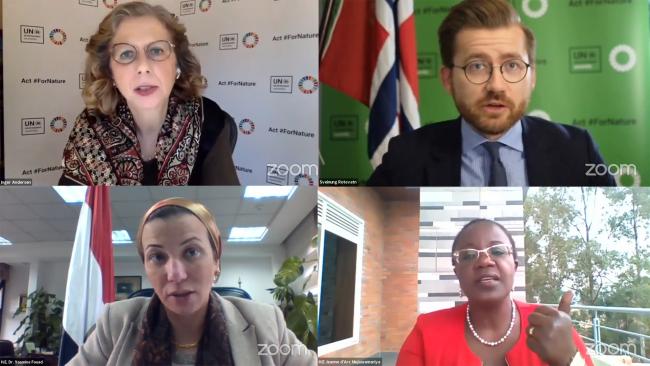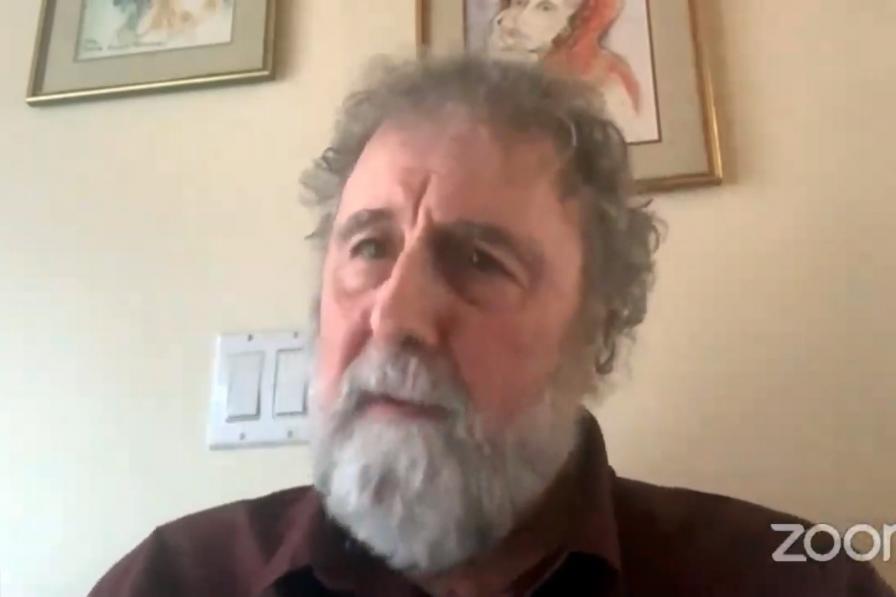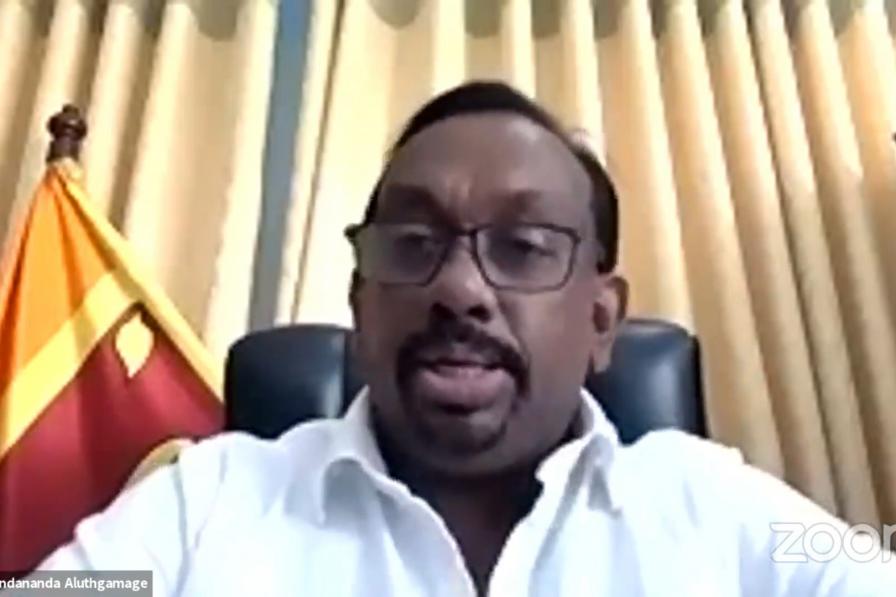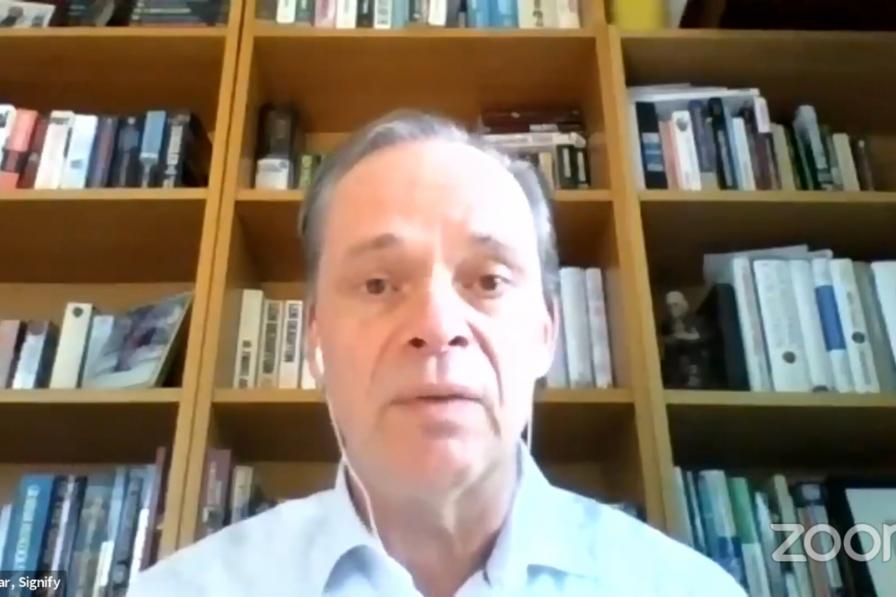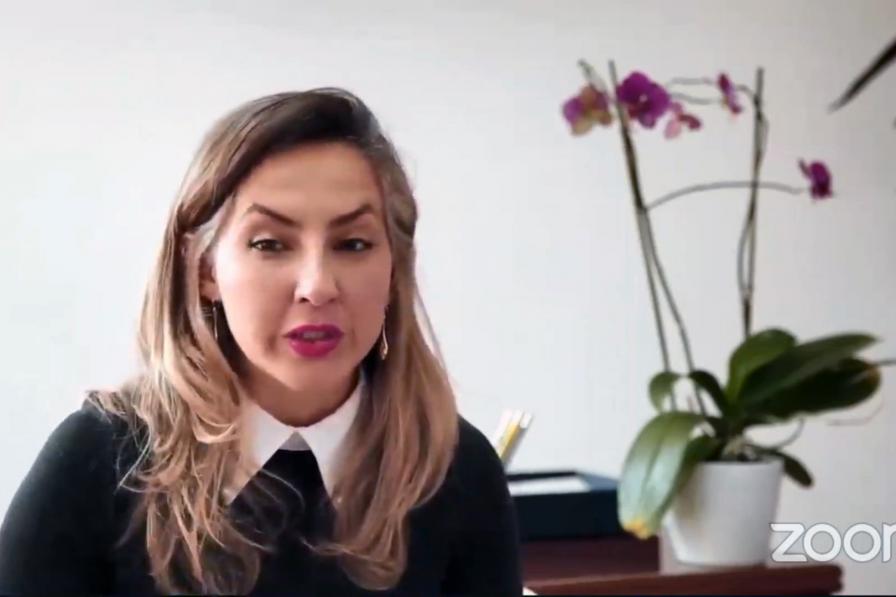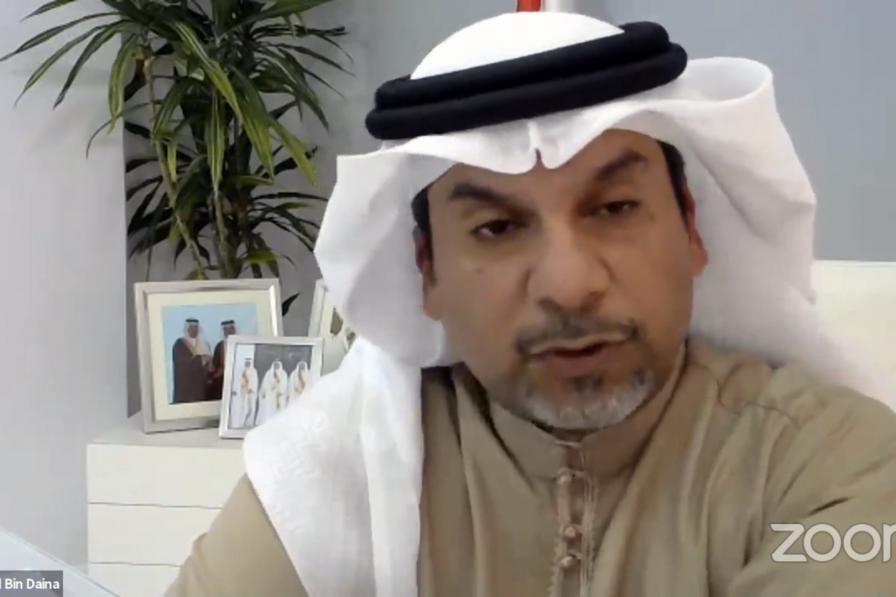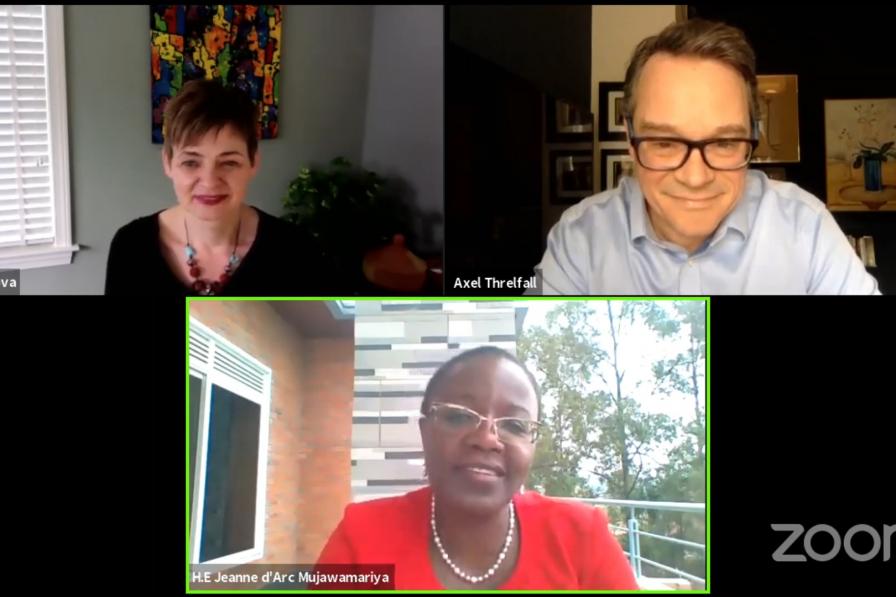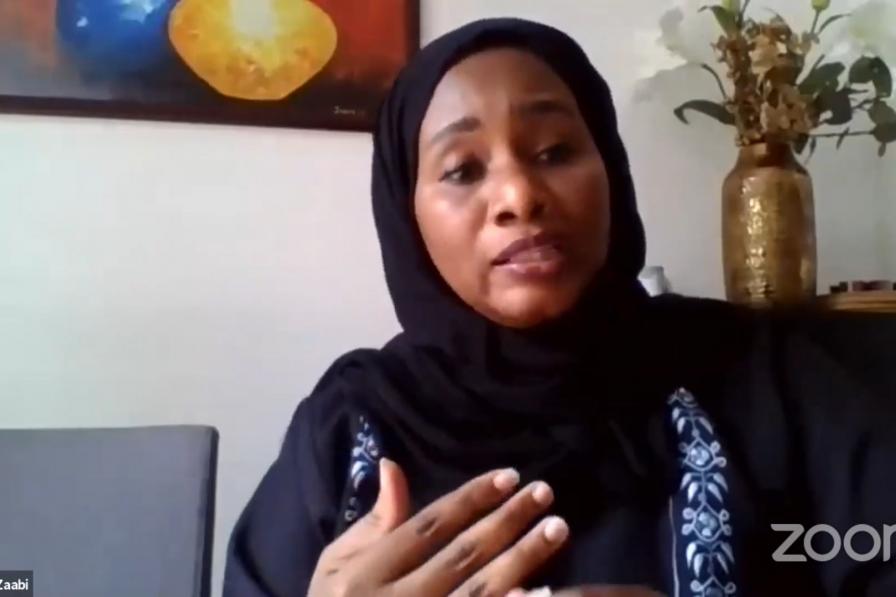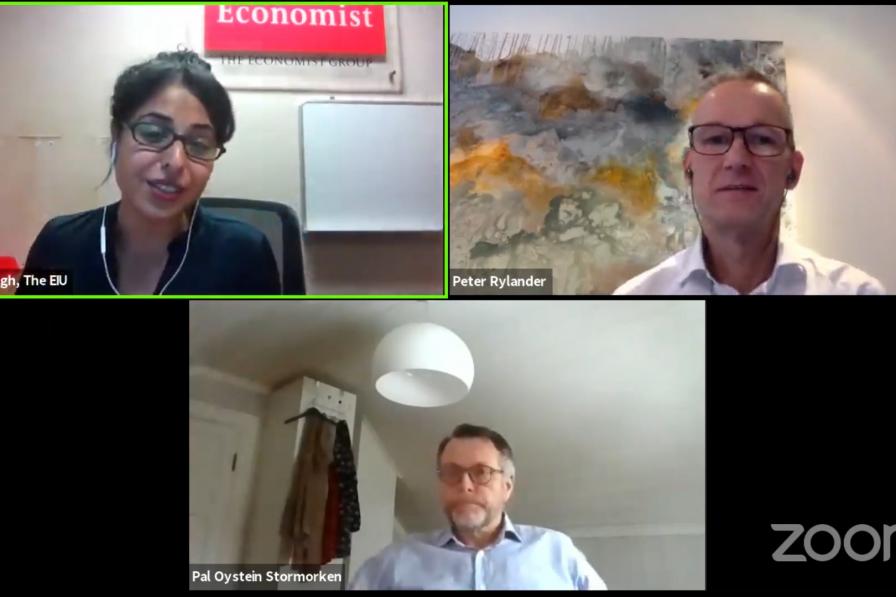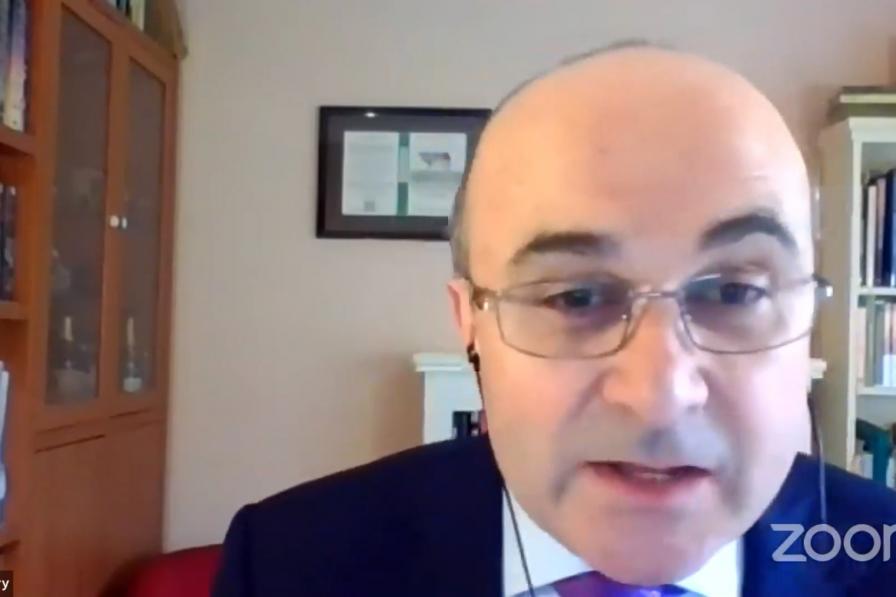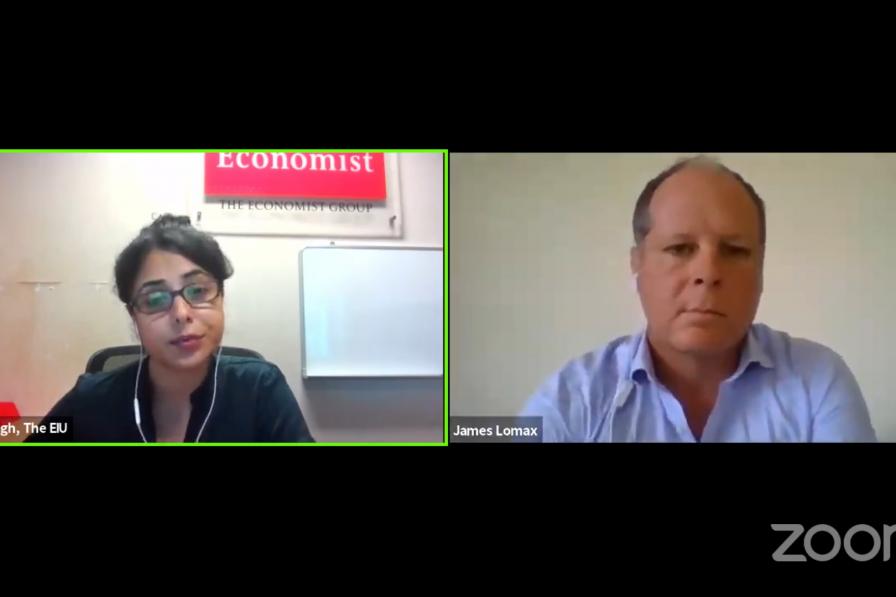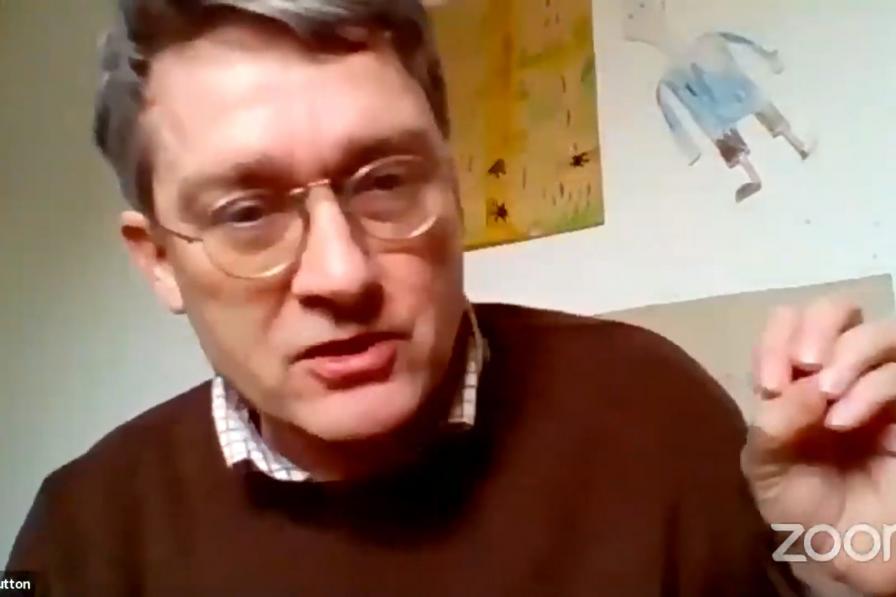The final day of the UN Science-Policy-Business Forum on the Environment (UN-SPBF) 2021 featured two sessions:
- Nature-positive Food Systems for a Healthy Planet and Healthy People; and
- Closing Session: Making Peace with Nature: The Defining Task of the 21st Century Multilateralism: Science, Policy, Innovation, Action!
Making Peace with Nature: The Defining Task of the 21st Century Multilateralism: Science, Policy, Innovation, Action!
The closing session addressed the theme, “Making Peace with Nature: The Defining Task of the 21st Century Multilateralism: Science, Policy, Innovation, Action!”
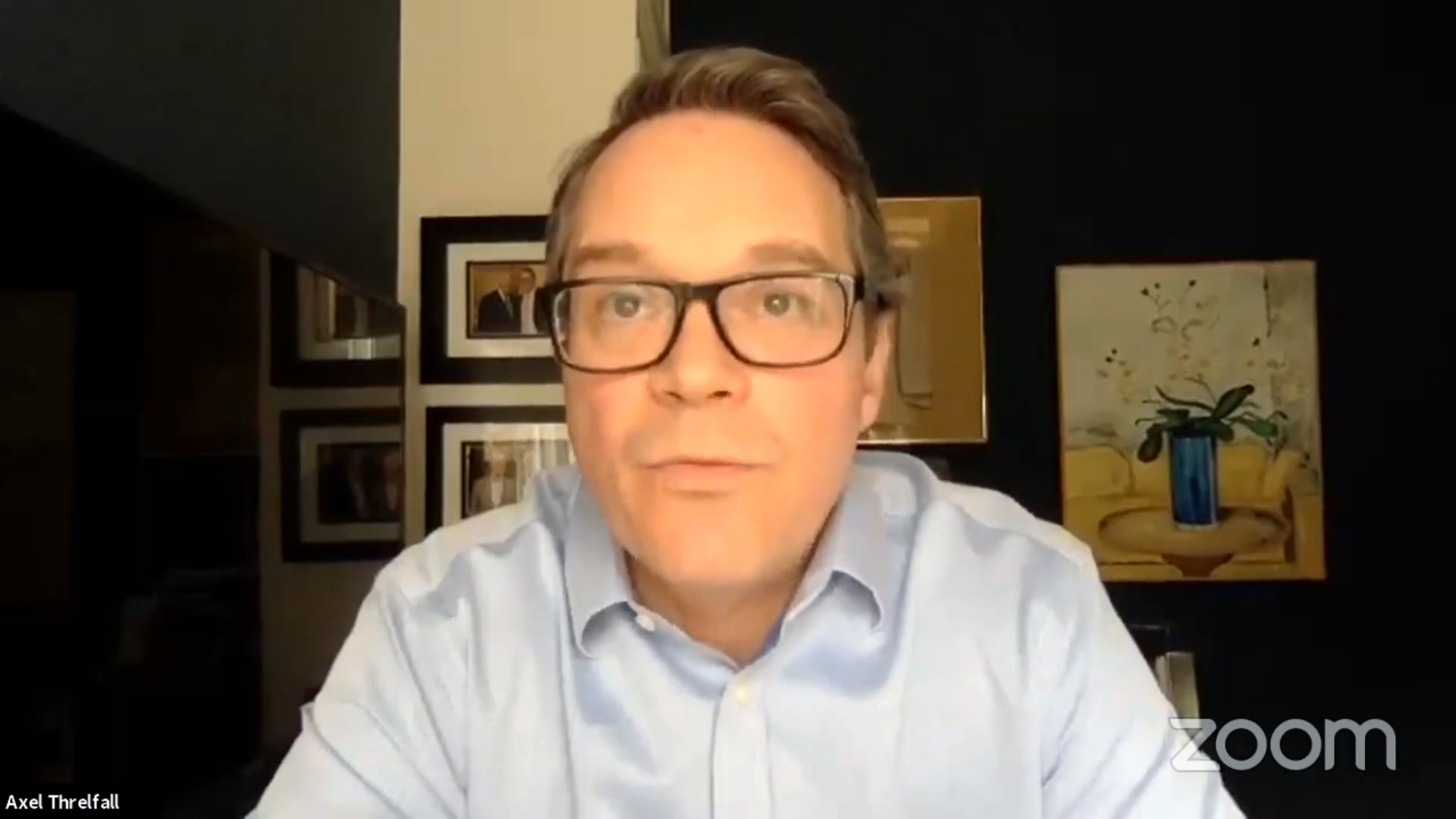
Inger Andersen, Executive Director, UNEP, said biodiversity loss, climate change, and pollution should be addressed in unison, with cohesive cooperation required across sectors and among stakeholders.
Sveinung Rotevatn, Minister of Environment and Climate, Norway, stated COVID-19 has not distracted leaders from long-term environmental challenges, and noted that the EU has adopted the European Green Deal and the US has rejoined the Paris Agreement on climate change.
Yasmine Fouad, Minister of Environment, Egypt, said we need to determine how to change our consumption patterns to lead more sustainable lives.
Jeanne d’Arc Mujawamariya, Minister of Environment, Rwanda, said UNEP should be supported in its role as a key connector in mobilizing the required resources to tackle the various environmental challenges and building back better after COVID-19.
Fernando Coimbra, Chair, UNEP Committee of Permanent Representatives, said current challenges require even more collective action that follows “the very clear roadmap” of the 2030 Agenda for Sustainable Development, with a focus on implementation across the economic, social, and environmental dimensions.
Maria Ivanova, Professor and Director, Center for Governance and Sustainability, University of Massachusetts, Boston, US, said solidarity is imperative. “It empowers all of us in all of the sectors,” she emphasized.
Jim Whitehurst, President, IBM, expressed readiness to work with governments in the development of a set of accounting standards to show businesses’ impact on the environment, to keep the private sector accountable.
Tina Birmpili, Deputy Executive Director, UN Convention to Combat Desertification (UNCCD), underscored the need for a global agreement on finance and technology to enable developing countries to achieve environmental goals.
Bob Watson, Environmental Scientist, Former Chair, Intergovernmental Science-Policy Platform on Biodiversity and Ecosystem Services (IPBES), stressed that biodiversity and climate change are not only environmental, but also economic, social, moral, and peace and security issues and thus need to be considered in an integrated manner.
Harry Verhaar, Signify, for Eric Rondolat, CEO, Signify, emphasized that the international community should use the COVID-19 crisis to build back greener.
Mohamed Mubarak Bin Daina, Chief Executive, Supreme Council for Environment, Bahrain, highlighted the need for capacity building and technology transfer to enable all countries’ transition to low-carbon technologies.
Yugratna Srivastava, Facilitator, UNEP Major Group for Children and Youth (MGCY), highlighted the role of young people in spurring the needed political will and accountability for environmental action.
Key takeaways from the closing session include:
- UNEP must continue to be the connector on environmental issues; and
- The UN-SPBF is an important part of the connector “mission,” and this mission is bearing fruit.
Nature-positive Food Systems for a Healthy Planet and Healthy People

Convened in support of the 2021 Food Systems Summit and the UN Decade on Ecosystem Restoration.
The session on “Nature-positive Food Systems for a Healthy Planet and Healthy People” discussed:
- Food system transformation as integral for nature and economies;
- Regenerative agriculture connecting us back to nature;
- Promoting nutrient use efficiency;
- Tackling food waste; and
- Targeted actions by public and private actors supporting the required transformation.

Mahindananda Aluthgamage, Minister of Agriculture, Sri Lanka, noted that the resolution from the fourth session of the UN Environment Assembly (UNEA-4) on sustainable nitrogen nutrient management recognizes the multiple pollution threats resulting from anthropogenic reactive nitrogen, including air pollution.
Marcus Gover, CEO, WRAP, said food loss and food waste occur throughout the supply chain, but most of food is lost in the home. Addressing this is both our greatest challenge and biggest opportunity, he noted.
Alzbeta Klein, Director General, International Fertilizer Association (IFA), said nature is at the center of food systems, but incentivizing action is key to achieve sustainable food systems that can feed the planet.
Christina Bauer-Plank, Global Brand Vice President, Hellmann’s, Unilever, said Unilever has committed to halving its food waste by 2025. She stated the company will engage supply chain partners to do the same.
Pål Øystein Stormorken, VP, Farm Ecosystems and Partnerships, Yara International, said digital technology keeps knowledge flowing to farmers and connects them to suppliers.
María Carolina Durán, Secretary of Economic Development, City of Bogotá, Colombia, announced a partnership with the UN Environment Programme (UNEP) to develop a behavior tracking system to reduce food waste, the analysis from which will strengthen knowledge, improve policies, and raise consumer awareness.
Key takeaways from the session include:
- There has been an openness and creativity to find effective solutions for nature-positive food systems; and
- There is an urgent need for multi-stakeholder collaboration to address the current lack of sustainability of our food systems.
